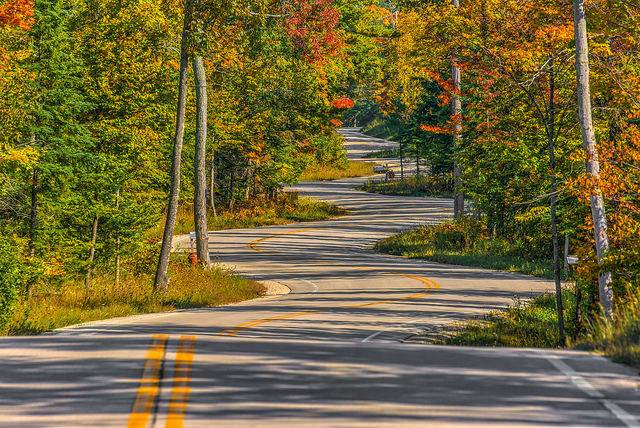As you know, at Postconsumers when we talk about eco-travel we’re also talking just as much about the impact of the consumer machine on travel and what that means to you. One topic we’ve never brought up is the idea of traveling off-season. There’s obviously a significant benefit to your budget if you travel off-season, but there are also some eco-benefits in ways you’ll be able to avoid some of the elements of travel consumerism if you plan your trip for an off-season time. How is that? Let us walk you through it.
Firstly, Let’s Define Off-Season
If you live in America, chances are high that travel off-season for you is any month that is not June, July or August. Most of American travel culture is based around the typical school year and the school year summer vacation. Because families with children don’t have to pull their children out of school to travel in the summer, it’s when the bulk of vacations happen. But keep in mind that what off-season is can also vary by region. For example, many Central and South American countries have a rainy season instead of a winter, and that rainy season is considered their “off-season.” Also, some travel destinations are built around the idea of an event that takes place, so their off-season is essentially any time that is not when the event happens. If you’re traveling within the United States, it’s probably fairly safe to assume that your off-season is anything that’s not summer. But for any other destination it’s a good idea to do your research and find out when peak tourist season is … and isn’t.
How the Consumer Machine Penalizes You for Traveling In-Season
Have you ever tried to book a flight in June, July or August and then tried to book the same flight to the same location in April or May? Chances are that if you did you would find that the exact same flight in April or May was only a portion of the cost. The same would be true of the cost of hotel rooms. The marketing departments at travel companies know that you’re more likely to travel in the summer, so they raise the rates on all flights, hotel rooms and many other travel related expenses. In the case of flights, it’s almost the same price in many cases as what it would cost you to book a flight for Christmas or winter holidays, which are typically considered the most expensive time to travel. Yes, there is an element of economics here in that prices are typically set based on factors such as supply and demand as well as what the market is willing to pay. And because people want to travel in the summer (in fact, feel as though they must travel in the summer) they are willing to pay more for flights, hotel rooms, tourist packages, cruises and more. But should those items really be priced higher just because it’s the summer? Are you getting a fundamentally better purchase or experience because it’s the summer? The answer is obviously no. You are paying more because the consumer machine understands that you’re driven by seasonality. It’s no different than paying full price for an item before Christmas that then goes on sale after Christmas. If you can travel off-season instead of during prime season, you’re actually beating the consumer travel machine at its own game.
The Eco-Benefit of Traveling Off-Season
There’s also an eco-benefit to traveling off-season, but it’s largely in your control. Because prices tend to be cheaper in off-season months, you can afford to upgrade your travel plans and opt for vacations where the emphasis is green or, at the very least, avoid the types of vacations that are often more affordable but definitely bad for the planet. We’re not saying that you should take all of the money that you’re saving by traveling off season and blow it, and we certainly don’t think that you should spend outside of your budget. But traveling during the lower price point part of the year can mean having the luxury to make more eco-friendly choices about what you do and where you go.
Off-season travel isn’t an option for everybody, but it does have its benefits if you can make it work. Do you live in a harsh winter climate? Think of the joy of escaping to an eco-friendly tropical resort in the middle of the cold, grey winter! And doing it for less than you’d spend in the summer. It’s all upside from where we’re standing.
Did we miss a benefit to off-season travel that you want to share with us? If so, just tell us about it on one of the social media channels below.
Facebook | Twitter | Instagram | Tumblr | Pinterest | Google+
Photo Credit: Ted Engler via Flickr





